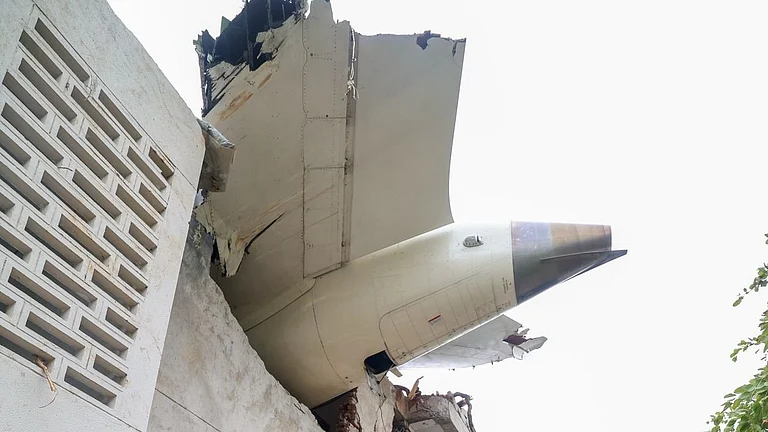Following the fatal crash of Air India Flight 171 in Ahmedabad on 12 June, the airline has reportedly become Tata Sons' "top priority," with conglomerate chairman N. Chandrasekaran stepping in to manage day-to-day operations. He is working alongside Air India CEO Campbell Wilson, who is currently engaging with regulatory bodies. This comes amid reports that Air India staff are grappling with severe morale issues since the tragedy that claimed at least 270 lives, including 241 passengers on board.
Ahmedabad Crash Aftermath: Air India Now Tata's Top Priority, Chandrasekaran Steps In as Staff Struggle
Tata Sons officials say Chandrasekaran is now primarily operating out of Air India’s headquarters. The move aligns with historical precedent, where Tata chairmen have assumed direct control during times of crisis
According to a report by The Economic Times citing Tata Sons officials, Chandrasekaran is now primarily operating out of Air India’s headquarters. Officials and company observers told the publication that the move aligns with historical precedent, where Tata chairmen have assumed direct control during times of crisis. J.R.D. Tata personally took charge during the 1989 Tata Steel fire, while Ratan Tata led the response during the Tata Finance fraud and the 26/11 attacks on the Taj Hotels. Chandrasekaran himself earned praise for his crisis management during his tenure at Tata Consultancy Services (TCS).
"Air India needs focused attention and swift, independent decision-making—something only the Group Chairman can currently provide," an official stated. Chandrasekaran began his career at TCS in 1987 as a trainee engineer and has been with the Tata Group ever since. He joined the Tata Sons board in October 2016 and became Chairman of Tata Sons and the Tata Group in February 2017.
In the aftermath of the crash, Tata Sons announced a ₹1 crore compensation for the victims’ families. Air India later supplemented this with an interim relief of ₹25 lakh. Chandrasekaran has also proposed the formation of an “AI-171 Trust” to provide long-term assistance to the bereaved families. The report adds that the chairman is currently finalising the details of the trust.
Meanwhile, CEO Campbell Wilson is reportedly holding daily meetings with department heads and leading a comprehensive review of the airline’s safety protocols. He is the primary liaison with the Directorate General of Civil Aviation (DGCA) and the Aircraft Accident Investigation Bureau (AAIB), both of which have called for a detailed safety audit. Wilson is also overseeing network operations amid ongoing disruption and is working on a contingency plan. He was en route to Paris when the crash occurred but immediately diverted to Ahmedabad.
Employees Seek Direction
Reports indicate that employees are struggling with trust issues, safety concerns, and public criticism. Many, especially pilots and cabin crew, are questioning their future with the airline, citing stress, fatigue, and a lack of accountability, Moneycontrol reported.
Staff have demanded greater leadership transparency, improved safety measures, and platforms to voice operational concerns. There is also increasing pressure to revise flight duty timings and address fatigue management more seriously, the report noted.
To mitigate the fallout, Air India has rolled out several support initiatives. Psychologists and trauma counsellors have been deployed in Ahmedabad and key base cities. The airline has activated its peer support programme, Buddy.AI, to help crew members cope mentally. Senior leadership is also engaging more closely with employees to boost morale.
In a 20 June statement, CEO Wilson said, “We (Air India) are supporting those staff who have served in Ahmedabad upon their return to base with a mandatory break and counselling. The counselling services, which are confidential and provided by professionals, continue to be available to everyone, and I encourage you to avail of them.”
Wilson also announced that Air India will continue with additional pre-flight inspections to ensure the highest safety standards. Reaffirming Air India’s and the Tata Group’s commitment to affected families and staff, he added, “We continue to grieve the loss and are doing everything possible to assist those affected.” Around 500 employees from Air India and other Tata Group companies remain in Ahmedabad to support grieving families.
Tata Sons Chairman N. Chandrasekaran has been actively engaging with employees at Air India’s airport bases in Delhi and Mumbai. He has also visited the airline’s aviation academy, interacted with aspiring pilots and cabin crew, and met with staff at customer support centres.
